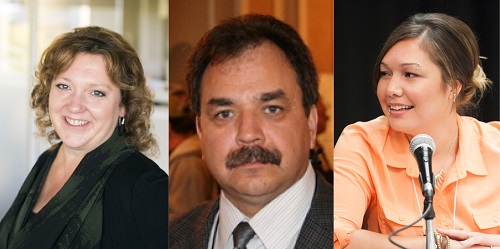
New workshop to uncover Indigenous relations within Canada
A new workshop from Johnson Shoyama Graduate School of Public Policy gives historical context to the current relationship between Indigenous and non-Indigenous people.
By Bev Fast, Freelance WriterUnderstanding Canada's Two Realities
If you are an Indigenous person living in Canada today, the reality of your day-to-day life is different from that of a non-Indigenous person. That reality was created, and is still being influenced, by 150 years of history.
On November 24, Johnson Shoyama Graduate School of Public Policy (JSGS) is hosting a one-day workshop to provide an overview of the historical events and policies that have shaped the current relationship between Indigenous and non-Indigenous people in Canada.
The workshop, entitled The Relationship between Indigenous and Non-Indigenous People is an opportunity to look beyond stereotypes and social memes to explore how past history have shaped current social, health and education inequalities for many Indigenous people.
“Recent events in the world and our province have repeatedly demonstrated the different realities that Indigenous and non-Indigenous communities face,” says Cassandra Wajuntah, research affiliate at the Indigenous People’s Health Research Centre (IPHRC).
“Despite all of the oppressive policies Indigenous people have been subject to in Canada, we demonstrate a willingness that is consistent with our traditional and cultural teachings to try and work together with non-Indigenous governments and communities,” Wajuntah says, a member of the Canoe Lake Cree First Nation who grew up in Meadow Lake.
Wajuntah is one of three workshop facilitators; as she is joined by Dr. Kathleen McNutt, Executive Director of JSGS, and Ron Crowe, Executive-in-Residence.
“My role as a facilitator,” Wajuntah says, “is to help challenge participants to discuss practical ways they can take the knowledge they gain in the workshop back into their everyday lives and workplaces, so it will inform their relationship-building strategies and implementation of the Truth and Reconciliation Commission (TRC) Calls to Action.”
Because healing begins with understanding
Surprisingly, many Canadians are unfamiliar with the long, often tangled history of legislation and policies concerning Indigenous people.
“I think it will be an eye-opening day for many,” says Ron Crowe, who brings more than 20 years’ experience in public administration, social policy and First Nations issues, governance and capacity building to JSGS.
“We recognize we are sharing some uncomfortable information. But when you have more knowledge about the history between Indigenous and non-Indigenous people, when you understand the intent of legislation and policies such as the residential schools, you begin to understand why the relationship has been so difficult,” Crowe says.
The workshop is open to the public, but the focus is on those working in public service, particularly those involved in drafting, researching, implementing and making decisions about policies that affect Indigenous people.
“However you’re involved in public policy, at some point, you or your team will be engaging with Indigenous communities and leaders and their institutions. In order to make positive change for the future, you need a sound grasp of the effect of policy on Indigenous people, and for that, you need to be aware of the history behind the current relationship,” Crowe says.
“Reconciliation calls upon all Canadians to start examining and learning more about the history and context that has contributed to our different realities and how we can all move forward in a better way,” Wajuntah says.
The JSGS public workshop on The Relationship between Indigenous and Non-Indigenous People takes place November 24, 2016, 9:00 AM – 4:30 PM, at the Heritage Inn in Moose Jaw. The workshop fee is $450 + GST. To register, call 306-585-5385 or email sharri.dewey@uregina.ca.

